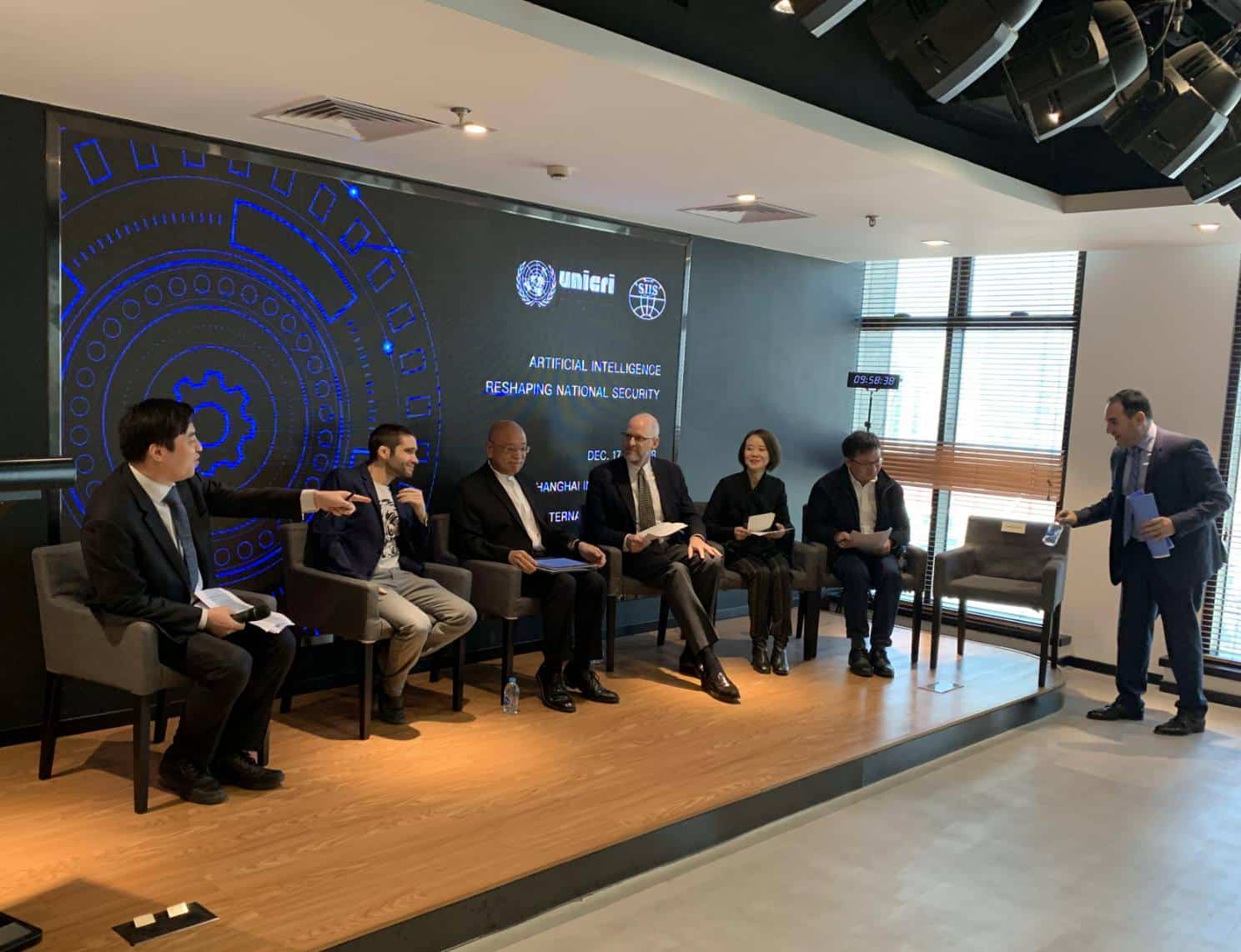Event Title: Artificial Intelligence – Reshaping National Security
Event Host: United Nations (UNICRI), Shanghai Institutes for International Studies
Date: December 17 – 18, 2018
Team Member: Daniel Faggella, Emerj Founder and CEO
Presentation Title: AI, Automation, and Economic Impact – National Security Implications
What Happened
The Shangai Institutes for Internal Studies and UNICRI pulled people together to talk about how AI might affect and change economies and how that might impact national security, as well as the military applications of AI. We spent two days mostly focused on panels and short presentations. Groups of between six and eight people each presented ideas about a specific topic, such as the AI arms race between the United States and China. The speakers were quite varied.

There were presenters from the defense sector in the US, a speaker from the Future of Humanity Institute at Oxford, and speakers from many Chinese universities who have researched the social implications of AI.
My own presentation was focused on the economic implications of artificial intelligence and national security. I focused a lot on the kind of work that is likely to be automated and how policymakers can work on hedging against potential job loss in certain sectors.
I also spoke about how governments can start thinking about their own economic competition with artificial intelligence to leverage it more fruitfully. I drew directly upon our research on AI in India, where we learned about the economic future of India and how the high margin, high growth area of IT services is potentially at risk for automation. The Indian government could consider ways of encouraging that sector to take advantage of AI instead of continuing business as usual, and other countries might look at sectors in their own economies and think thoroughly about how to encourage their continued growth by leveraging AI in the right ways.
What We Learned
- Dingding Chen, a professor at Jinan University, talked about the incredible growth and enthusiasm behind AI in China from the government on down, but also that China has a lot of growing to do in order to catch up to the United States. He mentioned that China has only one-tenth of the machine learning engineers as the US, and some Chinese firms are recruiting from India because they just don’t have the weight of raw AI talent coming out of schools the way the US does. He discussed this as one of the factors that still places China behind the US in terms of putting AI into action.
- Ben Garfinkle of the Future of Humanity Institute at Oxford spoke about some of the factors that might hold AI back from being all that relevant in military conflict in the near term. These reasons included that most AI investments have little to do with military security and defense. We tend to overestimate the power of new technology in the near term.
- Shishi Feng, a research assistant at the Shanghai Academy of Social Sciences, presented on the use of AI for disinformation, so-called “Fake News,” including Russian meddling into the US 2016 election and how Russia leveraged the AI behind Facebook to show more of what it wanted to users.
- There is a lot of shared enthusiasm around multilateral efforts between the US and China when it comes to thinking about security concerns regarding AI. There was a noticeable communication barrier between some of the folks in the West and some of the folks in China, as most of the people from the West were unable to speak Chinese and many of the folks from China could only speak a little English. As a result, it was somewhat challenging to speak after the presentations. Nonetheless, there was a willingness to have communication about the implications of AI on the future, and I found that to be heartening.




















